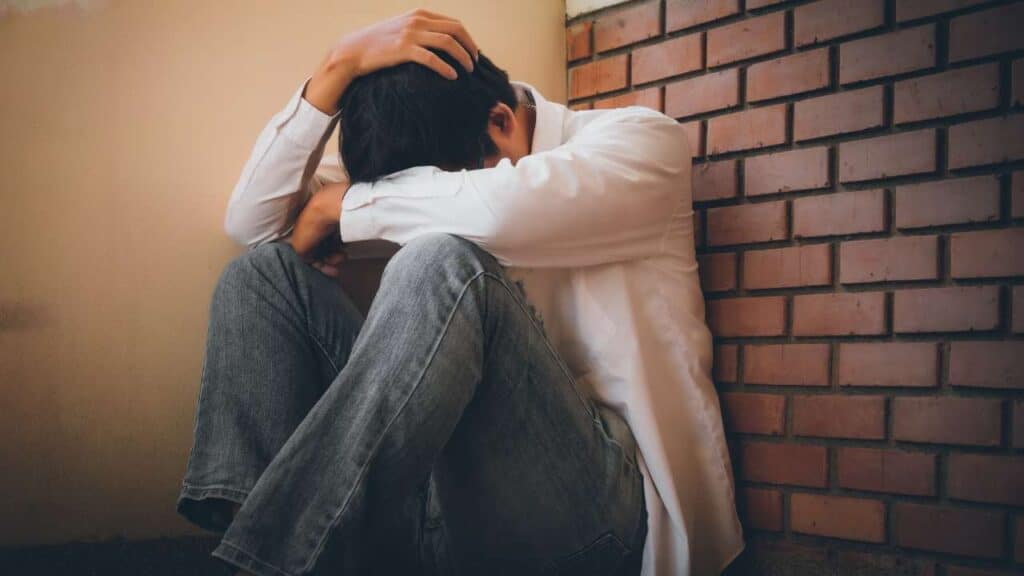Depression can be a silent and invisible struggle. It doesn’t always manifest in obvious ways, and many people suffering from it might appear to function normally on the surface. However, beneath the mask, they may be fighting battles others can’t see. Understanding the subtle signs of depression can help foster empathy, support, and awareness.
Here are some common actions that people often take that may go unnoticed but are linked to depression.
1. Isolating Themselves
One of the most common signs of depression is social withdrawal. You might notice someone canceling plans more often or avoiding social events entirely. This isn’t because they don’t care or don’t want to spend time with loved ones, but because depression can make the effort of being around people feel exhausting.
Even answering texts or phone calls can seem overwhelming when someone is struggling.
2. Sleeping Too Much or Too Little
Depression has a profound effect on sleep patterns. Some people experience insomnia, finding it impossible to fall asleep or stay asleep, while others may sleep excessively. This shift in sleep habits is not just physical exhaustion—it often reflects the emotional toll depression takes. Sleep becomes either an escape or an elusive comfort, both of which are ways the brain reacts to the mental strain.
3. Neglecting Personal Care
When depression sets in, everyday tasks that once seemed simple—like showering, brushing teeth, or getting dressed—can feel insurmountable.
This doesn’t mean that someone with depression is lazy or lacks discipline; it means that their emotional energy is depleted. Personal hygiene and appearance often take a back seat because the person is so weighed down by their inner struggles.
4. Overeating or Loss of Appetite
Appetite changes are another common, yet often overlooked, sign of depression. Some people may turn to food for comfort, eating in excess to numb their emotions, while others may lose interest in food altogether.
This change isn’t just about the physical act of eating; it’s a reflection of how depression can disrupt one's relationship with self-care and nourishment.
5. Struggling with Decision-Making
Depression can cloud judgment and make decision-making feel like a monumental task. What used to be easy—choosing what to wear, what to eat, or whether to go out—can become overwhelming.
The brain is preoccupied with negative thoughts and emotions, which makes focusing on even small choices seem impossible.
6. Appearing Distracted or Forgetful
Cognitive difficulties, such as trouble concentrating or memory lapses, are often linked to depression. Someone may seem absent-minded or forgetful, but this isn’t due to a lack of interest or effort.
Depression affects cognitive function, making it hard to stay present or retain information. This mental fog is a lesser-known symptom of depression but can greatly impact daily life.
7. Turning to Substances or Risky Behaviors
In an attempt to cope with the overwhelming feelings of sadness, some people may turn to substances like alcohol or drugs. These behaviors are often misguided attempts to self-medicate and temporarily escape the pain. Others may engage in risky or impulsive actions—such as reckless driving or overspending—as a way to feel something different than the numbing effects of depression.
8. Overworking or Underperforming
Changes in work habits can also be a sign of depression. Some individuals might throw themselves into their work, using it as a distraction from their emotions.
On the other hand, depression can sap motivation, leading to a noticeable drop in productivity or missed deadlines. Both extremes—working too much or doing too little—are coping mechanisms for dealing with the emotional weight of depression.
9. Frequent Complaints of Physical Ailments
People with depression may frequently complain of physical symptoms like headaches, stomachaches, or chronic pain. These aren’t just excuses; depression can manifest physically. The mind-body connection means that mental health struggles often show up as unexplained or persistent physical discomfort, adding another layer of difficulty to the person’s experience.
10. Using Humor or Positivity as a Mask
It can be hard to believe that someone who always seems upbeat or cracks jokes could be struggling with depression. However, many people hide behind humor or forced positivity to cover up their true feelings. They might laugh the loudest or be the life of the party, but underneath, they are battling feelings of sadness and worthlessness.
How You Can Help
If you notice someone exhibiting these behaviors, it’s important to approach them with compassion and understanding. Don’t assume they’re simply “going through a phase” or that they’ll “snap out of it.” Depression is a serious mental health condition that requires support, patience, and sometimes professional intervention.
Here are a few ways to help:
- Be available: Sometimes, just knowing someone is there to listen without judgment can make all the difference.
- Encourage professional help: Gently suggest they talk to a therapist or counselor if they haven’t already.
- Offer practical support: Depression can make daily tasks feel overwhelming, so offering to help with small things like errands or meals can be a huge relief.
- Be patient: Recovery from depression is not linear, and there will be ups and downs. Your consistent support can be a crucial part of their healing journey.
Final Thoughts
Depression doesn’t always look the way we expect it to. It can hide behind everyday actions, from sleeping too much to overworking, or even in the smile of someone who seems fine.
 Skip to content
Skip to content
